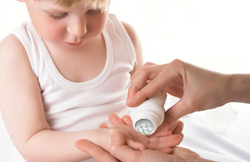New Dawn
By Jan Eastgate
July 8, 2010
 Imagine being a parent taking your 10-year-old daughter to the doctor where she gasps for air and suddenly dies in your arms. You are informed afterwards that a toxic dose of prescribed medication caused her death.
Imagine being a parent taking your 10-year-old daughter to the doctor where she gasps for air and suddenly dies in your arms. You are informed afterwards that a toxic dose of prescribed medication caused her death.
Imagine leaving your house to have lunch with friends, while your husband and 11-year-old daughter are happily cuddled together watching your daughter’s favourite TV show Animal Planet. You return home hours later, walk upstairs to her bedroom and find her hanging from the valence of her bed.
Imagine your teenage son is prescribed a medicine because a teacher said he needs it to curb his disruptive behaviour. Months later he is diagnosed with severe diabetes – a known but covered up side effect by the makers of the medicine. He dies shortly afterwards from complications.
These are not isolated incidents. They are representative of those thousands of children and adolescents who died while taking prescribed psychotropic (mind-altering) drugs in the United States. In the above cases, the drugs were prescribed to treat anxiety experienced while sitting for exams or for so-called “Attention Deficit Hyperactivity Disorder” (ADHD), the symptoms of which include fidgeting, losing your pencils, not sitting still, running about or excessively climbing, and butting into other’s conversations.
Australian Child Deaths
An estimated 1,900 Australians under the age of 19 have died while on antidepressants and antipsychotics. More than 30,700 under 18-year-olds were prescribed antidepressants in 2007-2008, including 550 aged 5 and under. Side effects include hallucinations, hostility, psychosis and suicide.
During the same period, more than 9,300 children under 18 – some as young as one – were prescribed antipsychotics, costing the government $3.4 million. Of the 477 deaths reported to the Australian Therapeutic Goods Administration (TGA) linked to antipsychotics, 15 were for ages 0 to 19, including intrauterine deaths. Experts estimate only 1 percent of Adverse Drug Reactions (ADRs) are reported to the TGA, so deaths could be as high as 1,500.
Common side effects of antipsychotics include excessive weight gain, life-threatening diabetes, and an irreversible neurological effect called Tardive Dyskinesia that manifests in uncontrollable twitching of the muscles and extremities and tongue movements. Another adverse effect, Neuroleptic malignant syndrome (NMS) can cause sudden death.1 Statistics the Citizens Commission on Human Rights obtained from the TGA in 2009 revealed 14 incidents of 10 to 19 year olds experiencing NMS were reported to it.
The psychiatric drug abuse of young Australians prompted one Western Australian MP recently to call for a national inquiry into the use of psychotropic drugs in children. To date, the federal government has yet to act.
Instead, it has potentially exacerbated the situation, handing over more than one hundred million taxpayer dollars to Patrick McGorry, Professor of Youth Mental Health at the University of Melbourne, Executive Director of ORYGEN Research Centre, and founder of the youth mental health centre chain, headspace.
Read entire article: http://www.newdawnmagazine.com/articles/the-brave-new-world-of-pre-drugging-kids-patrick-mcgorry-psychosis-risk-syndrome

